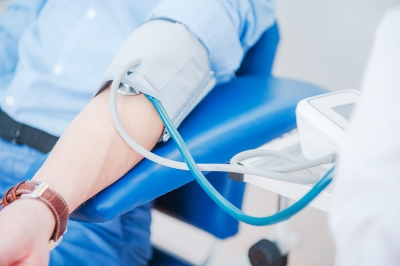Do low or zero alcohol beers benefit wealthier people more?
Do low or zero alcohol beers benefit wealthier people more?
While the increased availability of low or zero alcohol products may be a useful tool in reducing overall alcohol consumption among the more affluent sectors of society, it may be less beneficial for the rest of the population.
Alcohol consumption is among the leading factors contributing to health deterioration and premature death (1). In response to this, the World Health Organization (WHO) has set a target in the Global Action Plan on Alcohol 2022-2030 to achieve at least a 10% relative reduction in per capita alcohol consumption among those aged 15 and older by 2030 (2). Recently, this issue has gained increased attention from policymakers and global alcohol markets. However, there are doubts about its potential to reduce alcohol consumption across all sectors of society (3).
Evidence indicates that the choice of lower alcohol products is often driven by previous consumption of higher alcohol content products from the same brand (4). Other studies suggest that factors such as health and well-being, price differences, and reducing the social stigma associated with alcohol-free beverages also influence purchasing decisions and consumption of zero and low alcohol beers (5).
One study used data from British surveys conducted between 2015 and 2018, as well as household purchase data from 2015 to 2020 (6). The analysis used this data to understand consumption and purchasing patterns of low and zero alcohol beers. It included information on purchase frequency, demographic characteristics of buyers such as age, gender, social class, income, and geographical region. Additionally, household purchase data were analyzed to observe trends over time and examine variations in total ethanol consumption resulting from the introduction of these products into the market.
The study's results showed that the introduction of new low and zero alcohol beers was associated with a reduction in ethanol grams purchased, both among beer buyers and purchasers of all other beverages. Specifically, younger households and individuals from higher socioeconomic classes were more likely to purchase and consume these beers, given their higher price compared to products with higher ethanol content.
According to the study, although there is a growing trend in current purchases and consumption of low alcohol and/or alcohol-free beers, such products could only make a small contribution to efforts to reduce alcohol consumption, as they are still not very popular among the less advantaged sectors of society. Therefore, the study's authors emphasize the importance of implementing structural policies that improve the socioeconomic outlook for the entire population, alongside promoting low and zero alcohol products.
References:
- World Health Organization (WHO) Global Status Report on Alcohol and Health. WHO Press; Geneva, Switzerland: 2018.
- World Health Organization . Global Action Plan for the Prevention and Control of NCDs 2022–2030. World Health Organization; Geneva, Switzerland: 2022.
- Corfe S., Hyde R., Shepherd J. Alcohol-Free and Low-Strength Drinks Understanding Their Role in Reducing Alcohol-Related Harms. [(accessed on 30 August 2021)]. Available online: https://www.smf.co.uk/publications/no-low-alcohol-harms/
- Chrysochou P. Drink to get drunk or stay healthy? Exploring consumers’ perceptions, motives and preferences for light beer. Food Qual. Prefer. 2014;31:156–163. doi: 10.1016/j.foodqual.2013.08.006.
- Silva A.P., Jager G., van Bommel R., van Zyl H., Voss H.-P., Hogg T., Pintado M.M., de Graaf C. Functional or emotional? How Dutch and Portuguese conceptualise beer, wine and non-alcoholic beer consumption. Food Qual. Prefer. 2016;49:54–65. doi: 10.1016/j.foodqual.2015.11.007.
- Anderson, P., O'Donnell, A., Kokole, D., Jané Llopis, E., & Kaner, E. (2021). Is Buying and Drinking Zero and Low Alcohol Beer a Higher Socio-Economic Phenomenon? Analysis of British Survey Data, 2015-2018 and Household Purchase Data 2015-2020. International journal of environmental research and public health, 18(19), 10347. https://doi.org/10.3390/ijerph181910347




